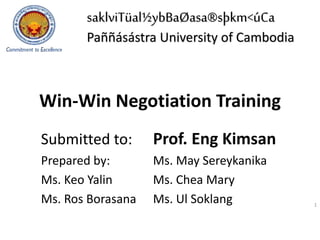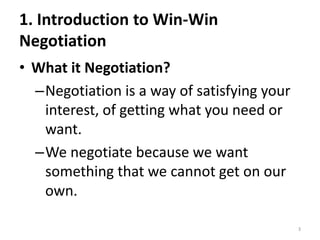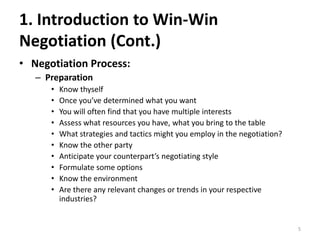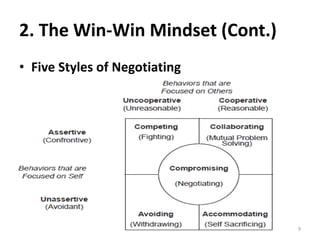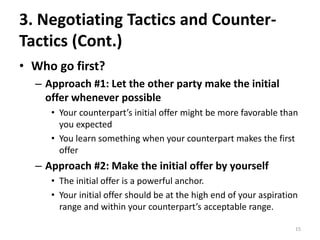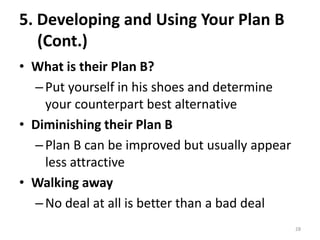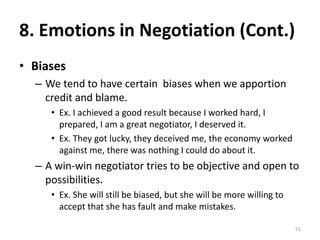The document is a comprehensive training guide on win-win negotiation, detailing fundamental concepts such as negotiation definitions, tactics, and the importance of mindset. It offers practical strategies for achieving mutually beneficial agreements, addressing communication, emotions, and relationship management during negotiations. Key topics include preparing for negotiations, understanding positions and interests, and the significance of planning alternatives and implementing agreements.
